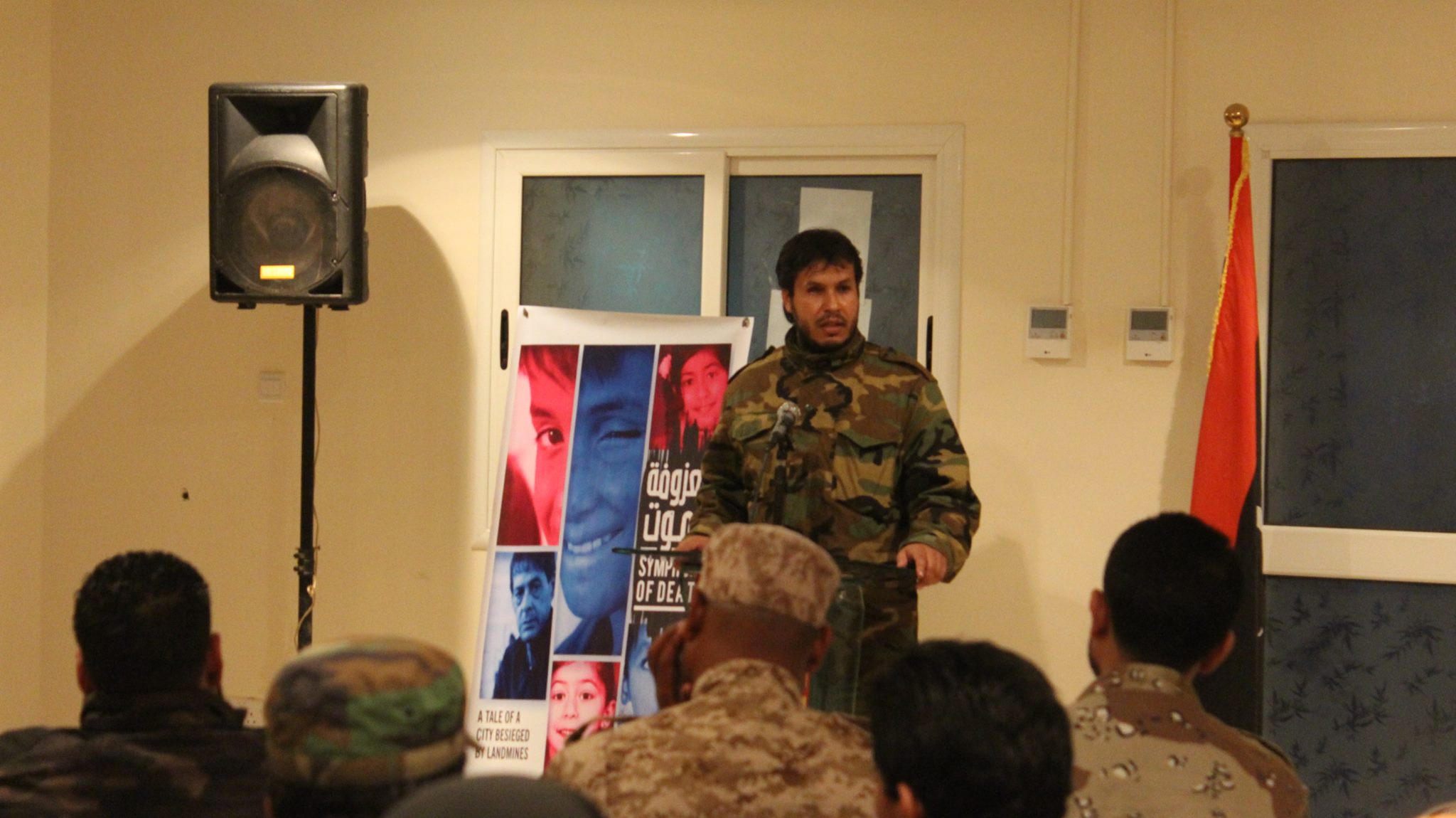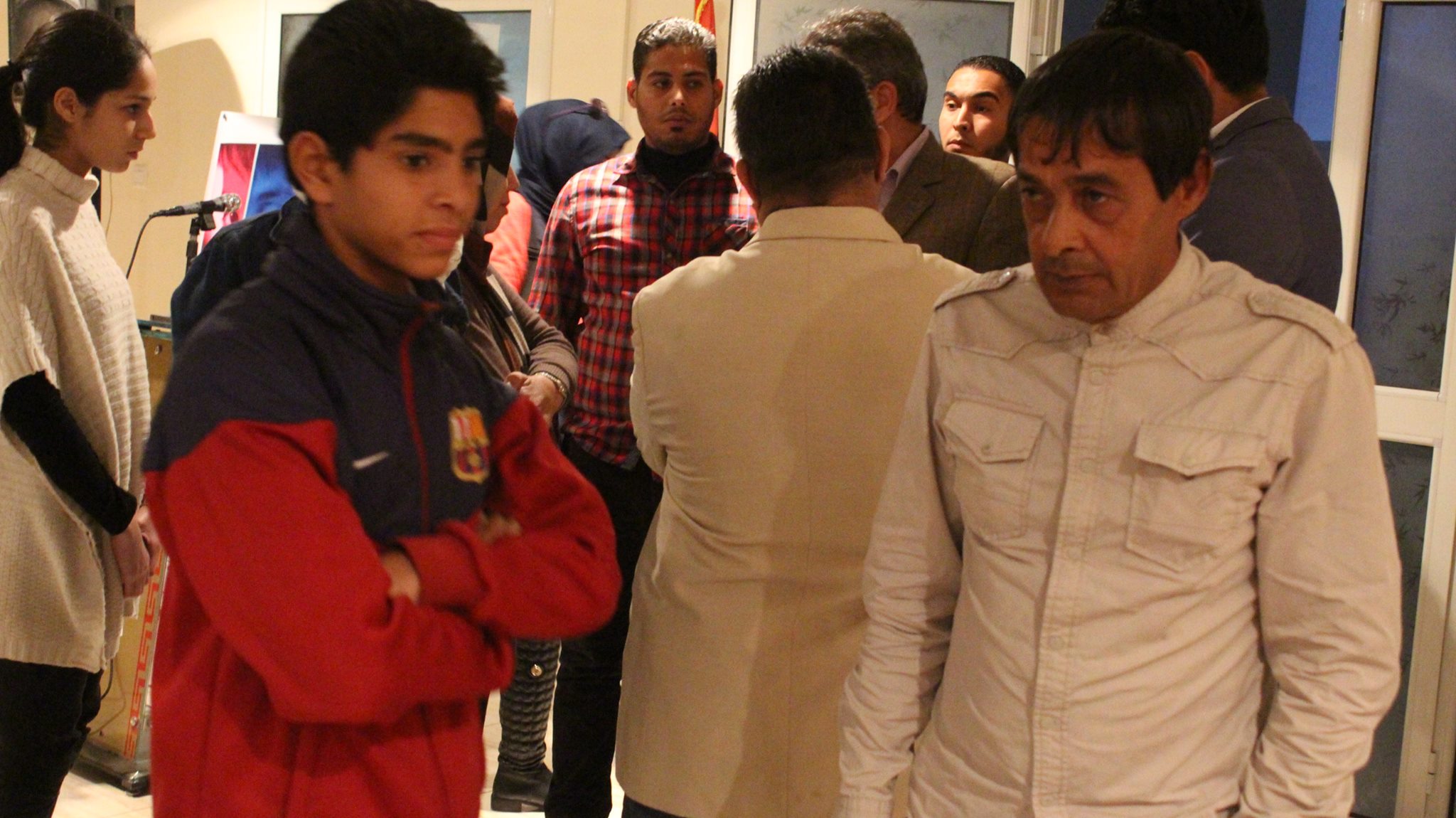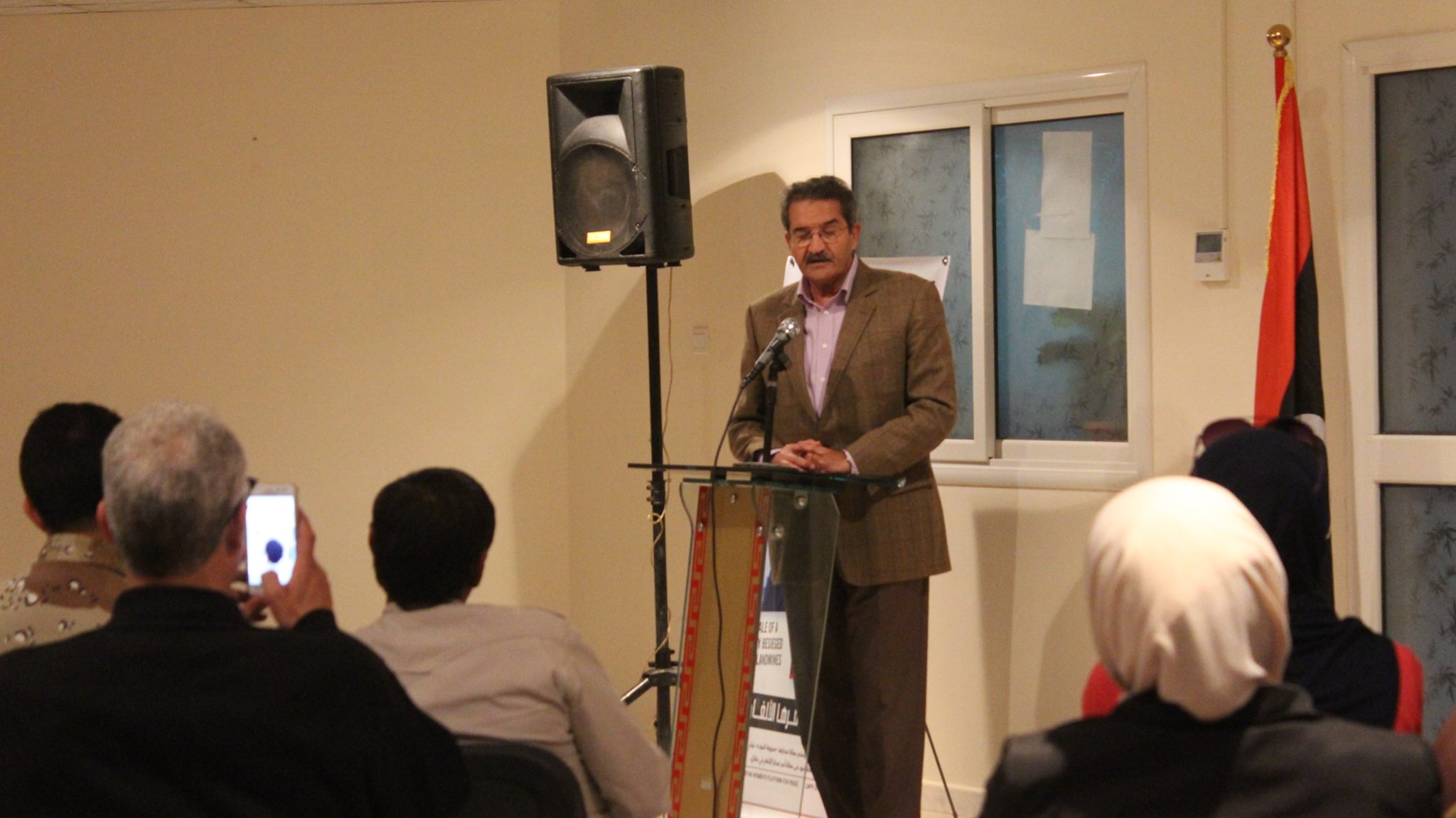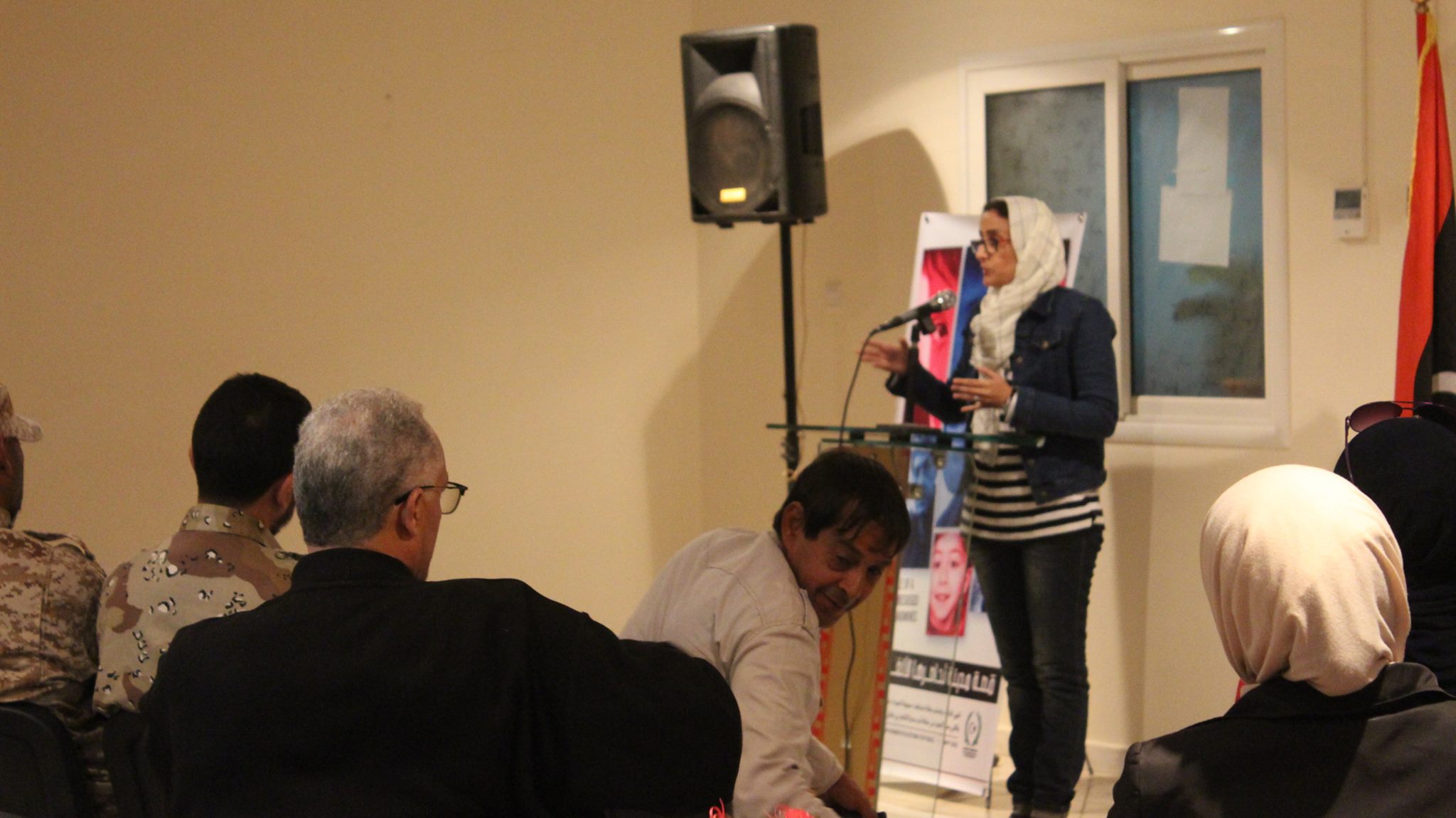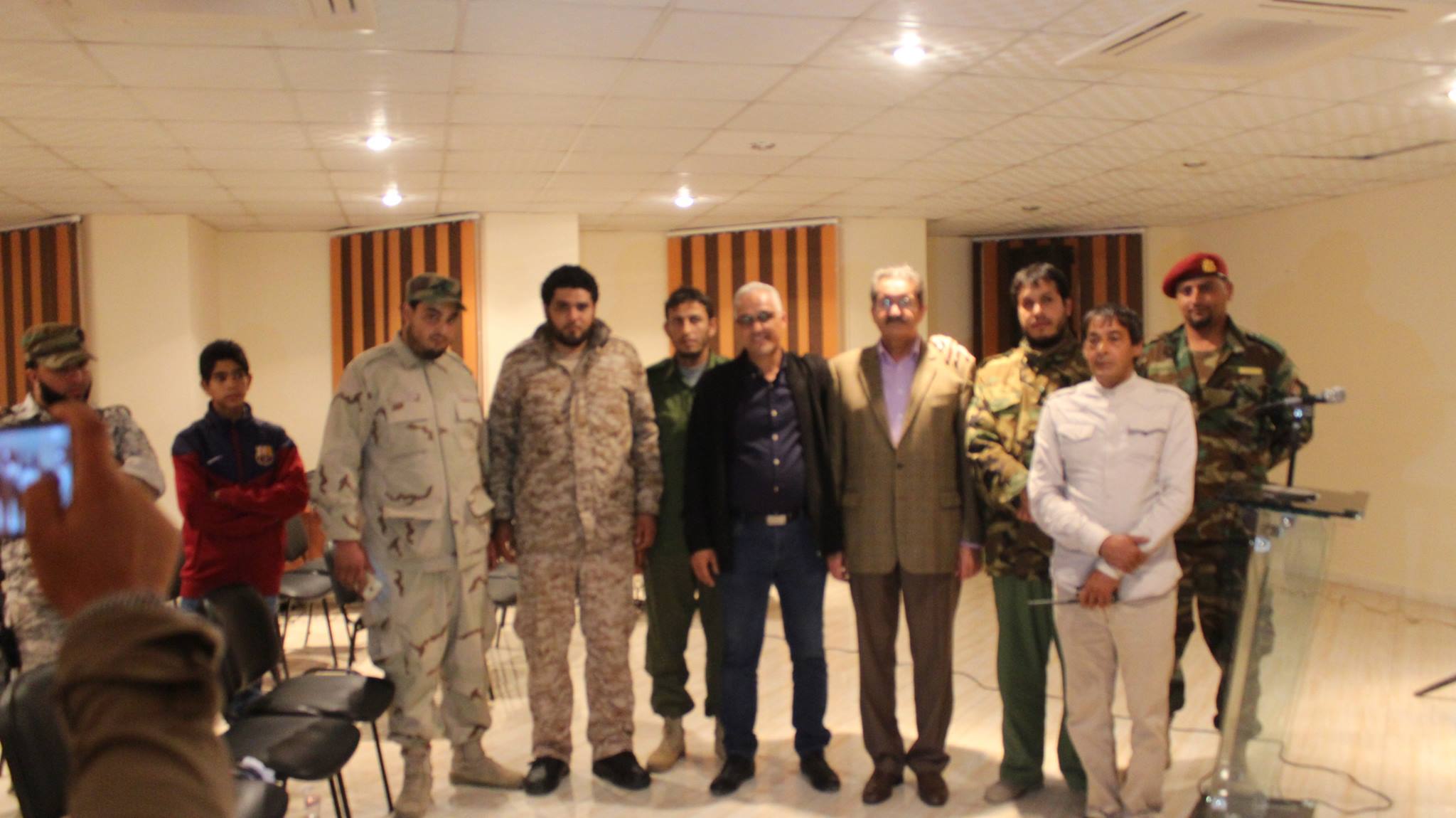Press Release: Official Screening of the Documentary “Symphony of Death" in Benghazi
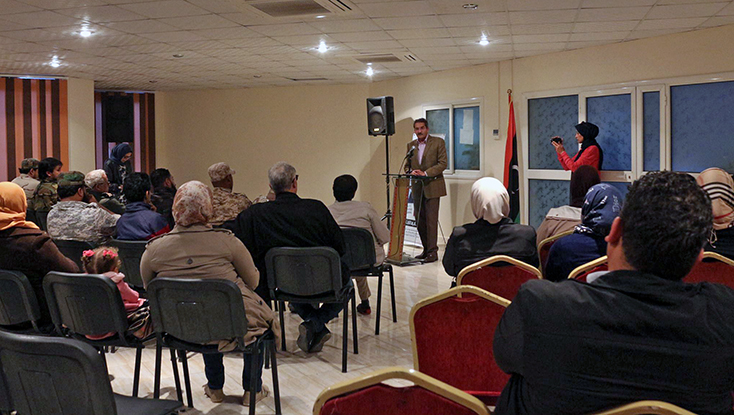
As part of the #16DaysofActivism2017 to end violence against women campaign, the Libyan Women's Platform for Peace (LWPP) organized an event in Benghazi, Libya during which the second documentary film “Symphony of Death: A Tale of a City Besieged by Landmines” was officially screened.
The event, which was hosted by the Wahbi Al-Bouri cultural center in Benghazi on Monday evening, Nov. 27, was attended by a number of officials and personalities, headed by the mayor of Benghazi, Abdelrahman al-Abbar, the commander of the Military Engineering Demining Unit, Abdul Salam Al-Mesmari, the director of Benghazi Maritime Port, Brigadier Naji Al-Shehaibi, international law expert, Dr. Hala Al-Atrash, and the director of the Benghazi Cultural Office, Ms. Manaji Bin Halim.
The screening was also attended by family members and relatives of mine victims whom their stories were documented in the film, as well as a number of human rights defenders and media and civil society activists.
The film is the second in a documentary series on demining & post truamatic stress disorder in Libya produced by Libyan Women’s Platform for Peace (LWPP) and filmed by journalist Khadija al-Amami. It highlights the individual, social, and economic long-term effects of landmines through interviews with several families of victims of landmines in Benghazi.
Watch the trailer: http://bit.ly/2ieBzlO
In his remarks after the screening, AbdulRahman al-Aabbar, the Mayor of Benghazi, descriped the use of landmines as "a war of another kind; a cowardly war." He said: "The enemy used dirty tactics, booby-traped childern toys and planted landmines in the civilian homes. It might be legitimate in wars to lay landmines in order to limit the advance of opposing forces, but in Benghazi, the landmines were planted in a house to whom its owners will return to be killed.»
Commenting on the filrm, al-Aabbar, said: "We hope that this film will be presented to the international criminal courts. We have presented a statistical digital survey, but we have not been able to get our hands on the like of such a great work to reinforce what we say at every opportunity, and to confirm that this war is against terrorism. The extend of the world's attention and interaction with this issue is very limited."
On his part, Abdul Salam al-Massmari, the commander of the Military Engineering Demining Unit, said: "On behalf of the military engineering unit, I extend my apology to the families of all the victims who are present here with us and those who are not for not being able to neutralize all the explosives because of our limited capabilities and the lack of proper equipment." He reminded that the military engineering unit "lost 52 of it's members who were killed while demining in Benghazi."
The first documentary “The Hidden Enemy”, released in September 2017, highlighted the deadly situation in some residential neighborhoods of Benghazi due to the widespread of landmines and explosive remnants of war, and the military demining unit's lack of resources and mine-clearing equipment.
While accurate statistics on human casualties are not available, concealed mines and abandoned munitions continue to kill and maim, and pose a grave threat to public safety as more internally displaced people, in the absence of awareness of the dangers of landmines and the limited means for dealing with them, try to return to their liberated areas before securing them.
The LWPP considers the problem of landmines to be a fundamental issue, posing a threat to the public, the environment, and the future of the country. Zahra Langhi, Founding Director of LWPP, says: "We at the Libyan Women's Platform for Peace believe that landmines and explosive remnants of war not only threaten the safety and lives of civilians, but also a threat to peace itself and lead to a never-ending war in Benghazi.” Langhi stresses: "No peace nor reconstruction without mine action.”
The LWPP calls on local and international mine action actors to work towards an effective and coordinated response to the problems of landmines and explosive remnants of wars in Benghazi and Libya in general.
The LWPP, launched on the 7th of October 2011, has experience in constituency building and mobiliظation, network facilitation and management, as well as successful advocacy and lobby activities in the fields of women’s political leadership and participation. The LWPP has also been involved in constitution building & peace building process efforts regarding the election of women parliamentarians, and creating platforms of dialogue with different Libyan stakeholders on peace & security.

